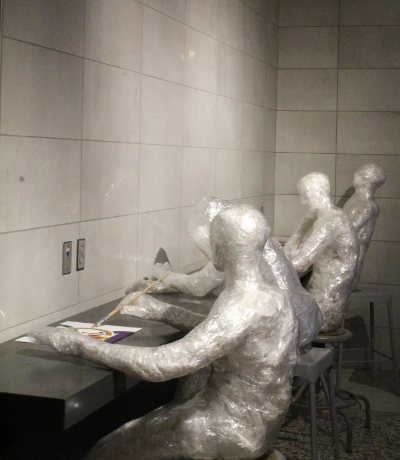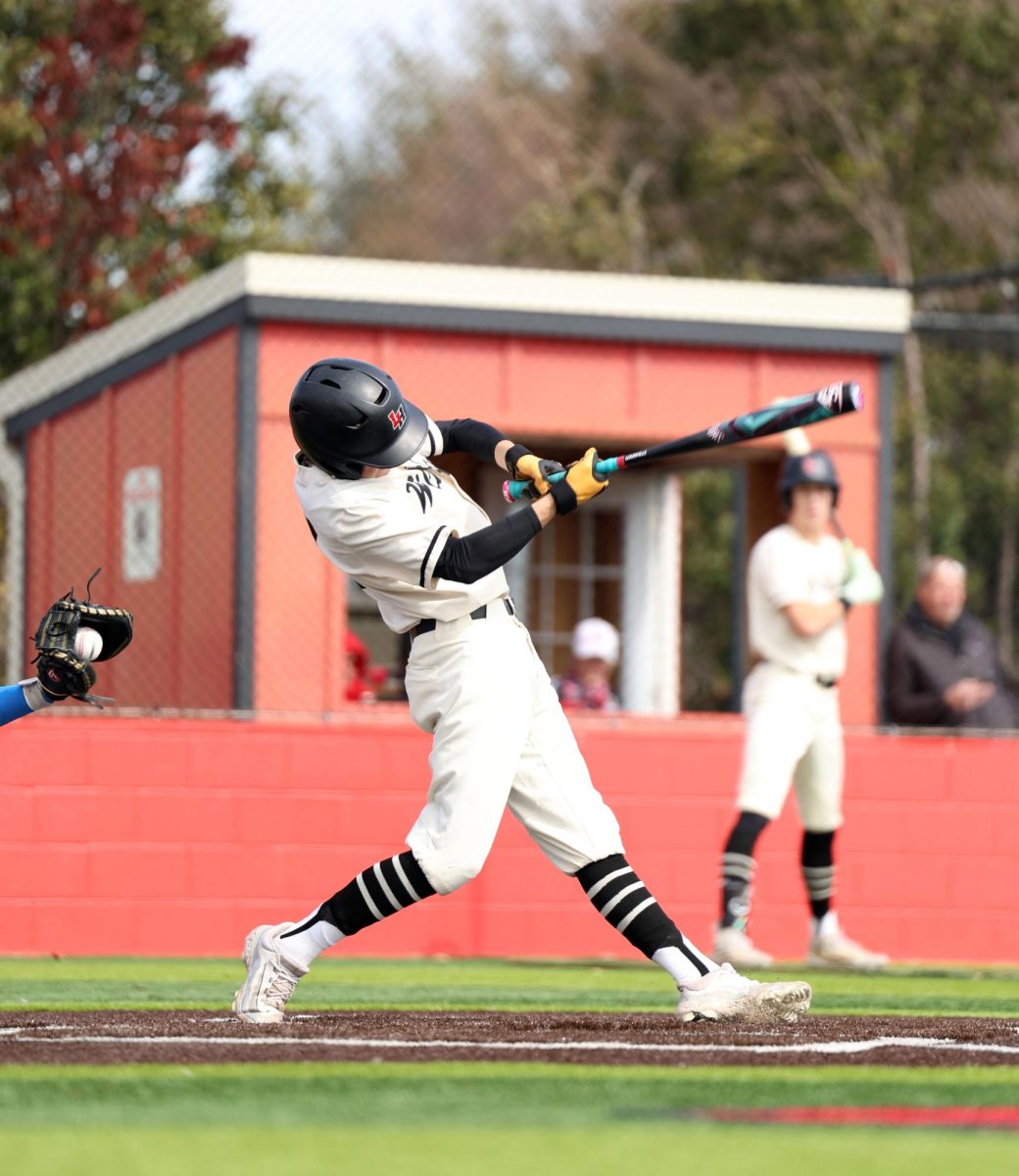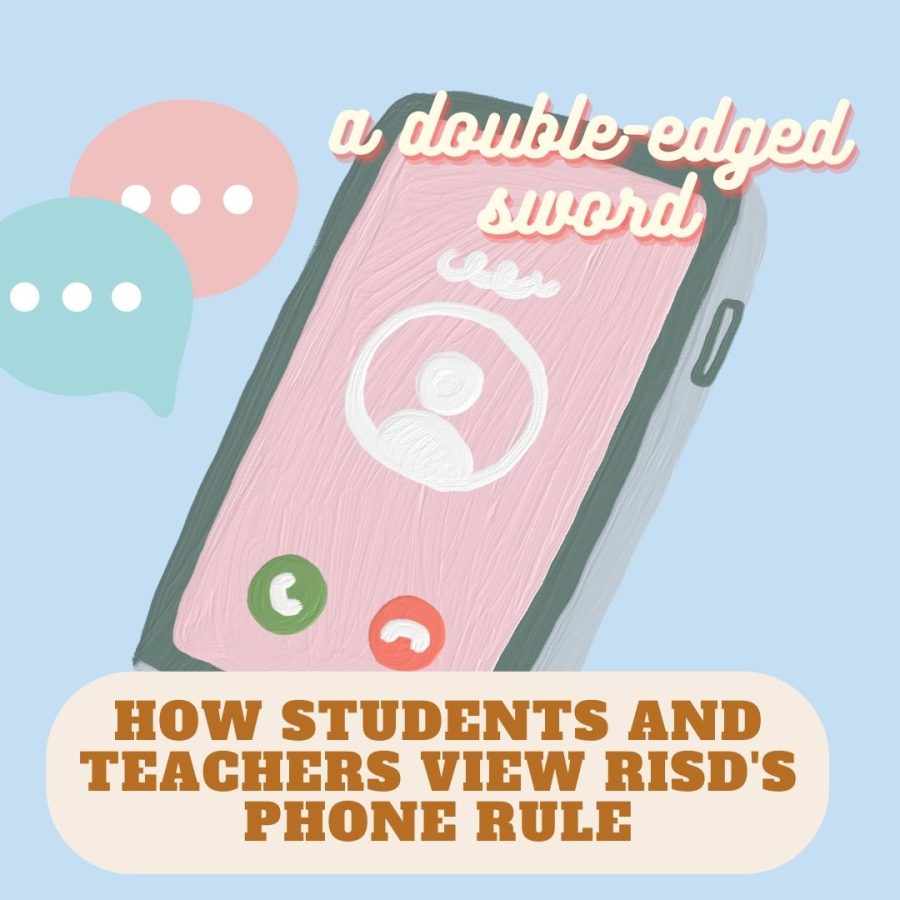A double-edged sword: How students and teachers view RISD’s new no-phone policy
By Mary McMullen and Phoebe Smith
Richardson ISD has gone cell phone free, and this has sparked a mixed response from students, parents, and staff members. This year begs the question, are you pro-phone or anti-phone?
Lake Highlands’ teachers Aimey Washmon and Tracey Bishkin firmly support the decision of having a cell phone-free school.
According to Washmon, the proposal was first mentioned last year during an ILT meeting. “Initially the response was very positive; almost all teachers and admin were in support of implementing a cell phone policy that would restrict cell phone use,” she explained.
There are numerous reasons as to why teachers find this policy to be very important.
“Phones are distracting in class, students’ mental health is affected by the constant stream of negativity on social media, phones are used too often for cheating, [and] phones are used for bullying,” Bishkin explained.
Additionally, Washmon stressed her concern for the amount of time that younger generations spend on their phones.
“I’m watching children and young adults lose their ability to socialize and communicate in a normal capacity,” Washmon added. “Furthermore, as a teacher, it’s unbelievably frustrating to compete with a phone for your students’ attention.”
Initial skepticism about such a drastic change was rooted in the sustainability of such a policy. Will teachers and admin eventually become lenient or give up on upholding the ban due to continuous violations?
“The administrators have gone above and beyond to ensure that the policy works. It’s up to teachers to continue to enforce the rules in their classroom and the hallways,” Bishkin said.
“I’m in it to win this battle against extensive cell phone use 100 percent,” Washmon added.
Not all teachers are staunch supporters of this ban, though. Matthew Smith, AP English Literature teacher, sees the pros and cons.
“My initial reaction to the phone pouches was wondering how they would be rolled out, enforced, and ultimately managed,” Smith said. “Initially, it also felt like an extreme shift, considering the more relaxed phone policy of the previous year.”
Smith agrees with RISD’s decision to no longer move forward with the Yondr phone pouches. He explained that there were too many logistics that needed to be navigated due to the stark shift in policy.
“I do think it has been a bit more challenging for students when unexpected technology issues occur such as a missing, forgotten, or uncharged laptop impedes them from completing in-class digital assignments,” Smith added. “In years past, students who were able to manage their phone usage responsibly could use their phones as an alternative way to get their work done if their primary technological device failed them.”
But these new rules affect students outside of the classroom in high school.
“There is also, of course, the question of what will individual phone management look like when entering a career or higher education. Will there be policies such as this that students will have to follow? Or will they be left to manage their own devices? Will they have the necessary self-control skills to do so after having a stricter policy,” Smith questioned. “This is something many adults struggle with, so I wonder what we are doing to teach these self-management skills.”
Understandably, teachers and students have somewhat polarized opinions when it comes to the phone ban. Bryan Reyes, 11, expressed his disappointment with the matter.
“The no phone rule has impacted the classrooms in a way that students are willing to risk more to use their phones, and that sounds bad,” he explained. “When I first heard about the ban, I thought it was a bit over exaggerated, but I’m glad that they didn’t resort to the pouch method.”
Even as students, the effects of the no-phone rule haven’t gone unnoticed.
“Without our phones, we pay more attention to our work and what we need to do,” Alexa Obregon, 10, commented. “There’s more room for communication between students, due to the absence of phones.”
Students’ lives seemed to be put on hold momentarily when the rule was first introduced. The routine that they fell into was shattered into the abyss.
“Without phones, I feel like school is a tad bit harder because it no longer is easy to text your friends to see what hall they’re at to meet with them, or to be able to whip your phone out to look up something quickly,” Reyes said.
The lack of access to easy communication is unsettling to many students.
“I think it’s been harder because I liked being able to have the freedom of texting whenever but now that privilege is being taken up, I don’t feel so good about it,” Obregon mentioned.
Having taught middle and high schoolers, Smith is curious about the possibility of expanding the Yondr pouches beyond the Forest Meadow pilot campus.
“It could be complicated to have the same phone policies for 17 to 18-year-olds as 12 to 13-year-olds,” Smith mentioned. “If this is something RISD decides to do, we will pivot, adjust, and adapt, like always.”
Your donation will support the student journalists of Lake Highlands High School . Your contribution will allow us to purchase equipment and cover our annual website hosting costs.

Phoebe Smith has been part of the Lake Highlands High School Newspaper since her sophomore year. This year, she has the privilege of being Managing Editor...





























